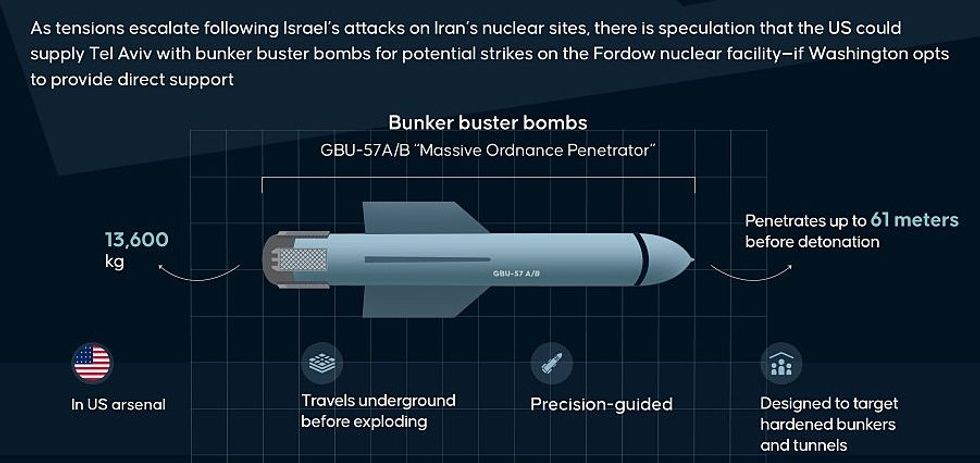A digital strike instead of a shooting war with Iran


Iran has once again violated its obligations under the International Atomic Energy Agency, thumbing its nose at the international community and inching the world closer to open conflict.
In the past, such provocation might have triggered a kinetic military response. But what if President Trump had another option — one that avoids American bloodshed, leverages international law, and puts the mullahs on the defensive using the very tools they rely on to maintain power?
President Trump doesn’t need to invade Iran to change it. He needs only to interrupt it.
Rather than ordering a strike package or putting boots on the ground, Trump could pursue a bold diplomatic gambit.
Under Article 41 of the United Nations Charter, the Security Council can authorize measures “not involving the use of armed force” to enforce its will. These include the “complete or partial interruption of economic relations and of rail, sea, air, postal, telegraphic, radio, and other means of communication” (my emphasis).
In other words, an embargo. But not just the old-fashioned kind.
A new kind of war
Time is a critical variable in any conflict. Traditional embargoes — naval blockades, sanctions regimes — require months or years to produce meaningful results. But a digital embargo, launched under the auspices of Article 41, could produce near-instantaneous effects on Iran’s command and control, propaganda apparatus, and internal cohesion.
Imagine this: Iranian cell networks silenced. Internet access throttled or shut down entirely. Satellite links disrupted. State television (or what’s left of it) cut off from its viewers. Social media — so often used as a tool of repression and misinformation — rendered inert.
This isn’t science fiction. These capabilities exist. And with international backing, their coordinated use against the Iranian regime would amount to a strategic information offensive — precisely the kind of campaign envisioned by the pioneering concept of SOFTWAR.
The battle for perception
SOFTWAR — short for soft warfare — is the doctrine of using information systems, media, and psychological operations to degrade an adversary’s will and capacity to fight without firing a single shot. The term isn’t just rhetorical flourish. As the progenitor of the U.S. military’s first “virtual unit” — a joint team of California Air and Army National Guardsmen tasked with exploring information dominance — I’ve seen the possibilities firsthand.
In this case, combatant commanders could employ SOFTWAR principles to carry out a tailored, non-kinetic campaign: degrading Iran’s internal communications, disrupting regime propaganda, and flooding the digital space with content that inspires dissent and destabilizes the theocracy’s grip on power.
Article 41 doesn’t just permit such actions — it provides the legal basis for them. The operative word in the U.N. Charter is “interrupt.” That grants flexibility. “Interruption” can mean anything from throttling bandwidth to flipping the narrative script. Every act of suppression by the Iranian regime could be met with a counterstroke that undermines its legitimacy and erodes public confidence.
RELATED: Israel’s strategy now rests on one bomb — and it’s American
 Photo by Mehmet Yaren Bozgun/Anadolu via Getty Image
Photo by Mehmet Yaren Bozgun/Anadolu via Getty Image
Bursting Iran’s reality bubble
Iran’s clerical regime depends on a tightly controlled narrative to survive. Interrupt that narrative — inject confusion, sow doubt, and amplify internal frustrations — and you begin to unmake the regime from within.
Television broadcasts could be co-opted to present alternative visions of Iranian life. Disaffected youth could receive direct messages from the free world. Clerical edicts could be ridiculed, refuted, or simply drowned out.
In the digital age, perception is reality — and controlling perception is a form of power more potent than many realize.
If executed with precision, coordination, and the right legal cover, such a campaign could avoid the mass casualties, blowback, and open-ended commitment of a traditional military operation. It could also mark a new chapter in U.S. strategy — one that prioritizes data dominance over deadweight tonnage.
A unit ahead of its time
The 1st Joint SOFTWAR Unit (Virtual), which I had the honor of organizing, was established to explore exactly these kinds of strategies. Though the unit now sits in bureaucratic limbo, its mission has never been more urgent — or more applicable — than in the current standoff with Iran.
President Trump doesn’t need to invade Iran to change it. He needs only to interrupt it.
With the Security Council’s approval and the backing of U.S. information forces, he could do just that — and rewrite the rules of engagement for the 21st century.
Originally Published at Daily Wire, Daily Signal, or The Blaze
What's Your Reaction?
 Like
0
Like
0
 Dislike
0
Dislike
0
 Love
0
Love
0
 Funny
0
Funny
0
 Angry
0
Angry
0
 Sad
0
Sad
0
 Wow
0
Wow
0











































































